Clinical oncologist Mariam Kukhalashvili was only 32 when, in 2021, she was appointed head of the outpatient department at the Western Georgia Oncology Centre in Kutaisi – one of the largest and most up-to-date cancer services outside the capital Tbilisi. It was a big responsibility for someone her age, but it was also a sign of the times.
Born in 1988, three years before Georgia formally seceded from the Soviet Union, Kukhalashvili was one of the first generations to be educated and trained in the post-Soviet era. By the time she reached medical school, in 2005, the country’s new-found independence was opening up exciting opportunities to overhaul the traditional healthcare and cancer care education and practice. She wanted to be part of that change; so she worked exceptionally hard, grabbing every opportunity to improve her knowledge and put what she learned into practice.
So by the time she was entrusted with leading outpatient services at the Oncology Centre in Kutaisi, Kukhalashvili was more than ready. Indeed, she was already impatient to start tackling some of the problems ‘upstream’ of her clinic that help explain why Georgia has some of the worst survival rates in Europe. Figures published in 2020 show that, among patients diagnosed with breast cancer between 2010 and 2014, only 66% were still alive at 5 years, with the survival rate for cervical cancer and colorectal cancer reported as 57% and 41% respectively. Stigma, fear and ignorance all play their part, says Kukhalashvili.
Over the past two years, therefore, in addition to her clinical work, she has also made time to organise a series of events across communities in western Georgia to boost participation rates in breast and cervical cancer screening, and more generally encourage conversations about cancer and why it’s so important to catch it early.
She’s engaged with GPs and medical specialists – including gastroenterologists, pulmonologists, gynaecologists – to boost early detection, by reminding them of signs that could be suspicious for cancer and encouraging them to refer patients with unexplained suspicious signs for further diagnostic tests. She’s set up a patient education programme, where patients who are on or about to start treatment can learn more about their diagnosis and treatment, as well as potential side effects and how to manage them, and can hear from some of her former patients about their own experiences.
All of that comes on top of organising an ambitious professional educational programme – a series of online sessions, featuring internationally renowned specialists, each lasting around five hours, and aimed, in particular, at enhancing knowledge, across different fields of oncology, among young Georgian cancer doctors like her.
“So many things are happening with me,” laughs Kukhalashvili, who describes herself as “ambitious, determined and well-organised”. During her training years, she says, they used to refer to her as a ‘machine’, on account of her relentless capacity for work.
Another attribute she might have mentioned is her impressive ability to seek and find the help and support she needs. Most of her recent activities educating the community, medical professionals, patients, and fellow oncologists, took place within the framework of a mentoring programme run by the College of the European School of Oncology, ESCO.
She repurposed the mentoring scheme to help her efforts to build local and national capacity in awareness, early detection and education
But that mentoring scheme was set up to help ESCO members achieve their own professional/career development goals. So it’s all credit to Kukhalashvili – and to her mentor Alberto Costa – that she seems to have successfully repurposed the scheme to help her efforts to build local and national capacity in awareness, early detection and education.
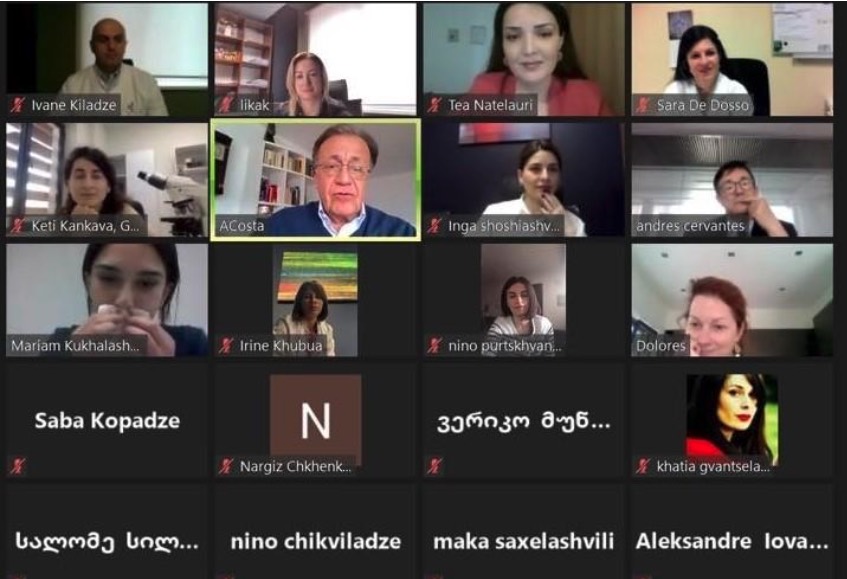
A problem solver
Kukhalashvili has been taking responsibility for solving problems since her childhood. She was born in Khoni, a “really small town” in western Georgia, to parents who were both maths teachers. The economic conditions there were much worse than in larger cities, she says, and the family struggled with money, giving private tutoring in addition to their teaching jobs at the local school. “My parents did their best to provide and support us children. Moreover they focused on our education and it was the high priority from my childhood.”
The young Mariam worked hard to secure her future. But she also spent a lot of time thinking up schemes that could help the family to earn a bit extra, and would try to convince her parents to give them a go. “In my childhood I had several business ideas. They were very realistic, and they attracted me so much,” she laughs.
The experience she gained in those early days of finding practical ways around the obstacles posed by limited resources is something she draws on now in her conversations with patients, many of whom are themselves struggling to find the resources they need, whether that be to finance treatments beyond what is covered by the healthcare system, or just to cope with the financial hit that comes with a cancer diagnosis.
Addressing these issues, she says, is the toughest part of her work, “because social problems take so much energy from me… but it is realistic to have these problems in Georgia right now, and we need to face up to them.”
Academic success got her a place at the country’s top medical school in Tbilisi, where people of her generation were busily lapping up cultural influences from outside the country and exploring what they wanted the future of Georgia to look like, and their own role within it.
She describes medicine as a kind of magic: “it widens your horizons and gives doctors ‘a lucky chance’ to save people’s lives”
Kukhalashvili talks of “wonderful memories of painstaking work, education, and simultaneously, there were friendships, watching and discussing movies and different TV programmes… We all had mutual interests and goals and that motivated us a lot.”
She describes as a “turning point” in her own outlook, a screening organised by her classmate of Pink Floyd – The Wall. This is a 1982 musical drama film based on Pink Floyd’s iconic concept album where, she says, “we observe a great struggle for freedom and liberty.” It brought home to her the importance of music, cinema and art “in shaping the human character and personality”.
She was no less impressed by the power of medicine which, unusually for a medic, she describes as “a kind of magic”. It widens your horizons, she says, and gives doctors “a lucky chance” to save people’s lives.
The ‘red chemotherapy’
It was witnessing that life-saving power that convinced Kukhalashvili to specialise in oncology. In her fourth year of medical school, she’d been given the chance to spend some time observing patient care in an oncology department, and then to be involved herself in some consultations. The first patient she encountered was a young man with lymphoma who came in with huge lymph nodes and difficulty breathing. “He was treated with a red chemotherapy,” she recalls, “and I remember how these lymph nodes were reduced in size… how his quality of life improved during treatment, like his breathing… how doctors helped him to manage the side effects of treatment.” He recovered completely and remains alive and well 10 years later, she says. “It was very impressive, that a patient with huge problems recovered after just six cycles of doxorubicin.”
It was his young age – 27, only five years older than she was – that really brought home to Kukhalashvili the importance of what had been achieved in that oncology clinic. “I still find it very difficult when I have patients younger than me,” she says.
Residency places were limited within Georgia’s own cancer services, so under an exchange programme with Russia, after graduating from medical school in 2012, Kukhalashvili did her two-year residency in oncology at a leading cancer research institute in St Petersburg.
It’s the one period of her training she is not so keen to talk about; not just because Russia doesn’t have a great reputation in Georgia and relations between the two countries remain strained, but also because Russia still does most of its medical training in Russian, using Russian-language textbooks and journals, when what students want and need is access to the cutting edge scientific and clinical knowledge that is published primarily in English-language texts.
But, as ever, Kukhalashvili found a way to get what she needed. One of her supervisors, Alexey Novik, impressed by her determination and commitment, took her under his wing, and gave her access to the international societies and literature. “He introduced me to PubMed, to MedScape, to the European guidelines, and he helped me to register on the ASCO and ESMO websites… He was a great supervisor to me.”
This was the period of her training that earned her the epithet ‘machine’. “Because I had unbelievable energy and motivation. I remember I hardly slept at night. I was reading writing, all the time preparing for the next day… The residency programme is two years in St Petersburg, and two years is not enough for oncology. I tried to use every minute.”
During her time at the NN Petrov National Medical Research Centre for Oncology, in St Petersburg, Kukhalashvili was exposed to the full range of cancer types, all treated within a multidisciplinary setting. Every day she and her supervisor Novik would work together “like doctors,” she says. “We started together, and after one year I was like an independent doctor. Because I’d been working for 24 hours a day for my career, after one year I was able to consult patients alone.”
And all the while, she kept her radar on for opportunities to add to her knowledge. During the first manic year of her residency she managed to fit in a number of additional educational opportunities, all located in St Petersburg or Moscow, including a course on pain management, attendance at the Eurasian Forums on Melanoma & Skin Cancer and Head & Neck Cancer, and a series of Eurasian Pathology Seminars.
“Because I’d been working for 24 hours a day for my career, after one year I was able to consult patients alone”
Over the course of the following year her horizons began to move further west, starting with a scholarship to attend the European School of Oncology’s (ESO’s) flagship Masterclass in Clinical Oncology (held in Moscow that year). This was followed, the same year, by scholarships to attend an ESO course on gastrointestinal cancers (held in Tbilisi), an ESMO preceptorship on prostate cancer (Lugano, Switzerland) and another ESO course, this one on Molecular Diagnostics, Genomics and Epigenetics (Rome).
With her residency drawing to a close at the end of 2014, Kukhalashvili returned to Georgia where, after a short spell in Tbilisi, she took up a post as medical oncologist at the brand new Oncology Centre in Kutaisi, a mere 30 mins drive from her home town.
The constant search to extend her professional knowledge kept her busy, applying for scholarships and attending courses across multiple oncology topics. Then at the close of another ESO Masterclass in Clinical Oncology, this one in 2017 in Tbilisi, she plucked up her courage and asked one of the faculty members, Professor Jan Vermorken, specialist in gynaecological and head and neck cancers, whether there was any chance that she could visit Antwerp University hospital, where he was based, to learn how things were done. “How many months?” was his response. Kukhalashvili could not believe her luck. “I could not believe that it was available for me,” she laughs.
Vermorken opened many doors for her, and she felt singularly blessed that he had ‘selected her’ for further education. “The most friendly, supportive person ever – my ‘medical father’”. Later, at a meeting of the European Organisation for Research and Treatment of Cancer (EORTC) in Lyon, she learned she was by no means the only one to have been singled out for so much help. “The conference hall was full of young doctors who Jan Vermorken supports, motivates and opens so many doors. I remember these young people were recalling details about Jan, how they had met him and what he had done for them. They were so grateful and appreciative. It was like a famous scene from Dead Poets’ Society, where [the character played by] Robin Williams is a ‘Captain’ of the younger generation.”
Kukhalashvili stayed in Antwerp almost three months, spending time in the outpatient department with different doctors, different cancer types and exploring different possibilities. She is enormously grateful for the trouble so many people took for her. “All the patient consultations were in English. Just for me. It was a huge experience. Everything, follow up schedules, diagnostic procedures, treatment schedules, side effects of treatment, everything was happening in this department and was available for me.”
She attended multidisciplinary team meetings in the head and neck department and had the chance to contribute to case studies reported in the Belgian Journal of Medical Oncology – her first time in print.
Vermorken even arranged to send her to Brussels for a few days, to see the radiation therapy department at the Institut Jules Bordet, and learn about treatment planning, dosing and scheduling. And he brought her along to a meeting of the EORTC Head and Neck group, to which she was admitted as a member the following year – the first Georgian member of the EORTC she believes. “That was an exceptional part of my educational activity.”
But even as she was enjoying every moment, she was thinking: young oncologists in Georgia could do with some that. “That was a great example for me to be as supportive and helpful as they are; to help Georgian colleagues to find links with their foreign colleagues, to be a team determined on updating, sharing information and experience to others.”
But even as she was enjoying every moment, she was thinking: young oncologists in Georgia could do with some that
Never one to let a good idea go to waste, in 2018 Kukhalashvili organised an in-person conference for young Georgian oncologists, at her own oncology centre, and invited leading oncologists from Germany, Luxembourg, and Belgium to address this issue. Then three years later, as part of the ‘personal goals’ she included in her ESCO mentoring programme, she organised (or in some cases co-organised) a series of online professional education sessions on a variety of oncology topics, aimed in particular at oncologists in Georgia and the wider region.
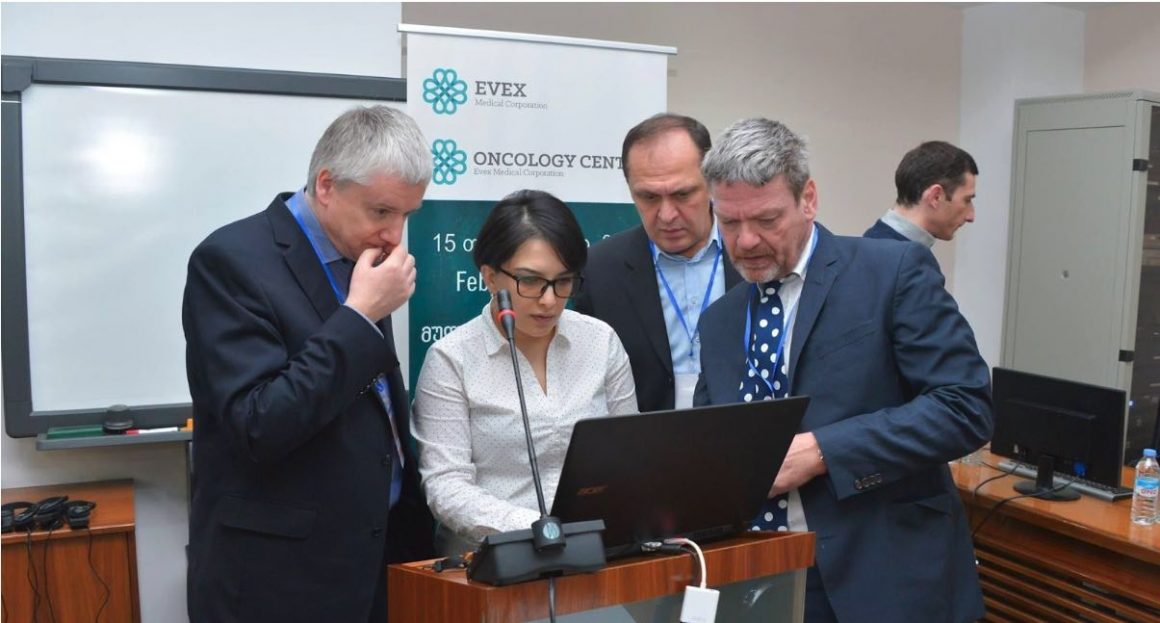
She stresses the deep debt of gratitude she owes to her mentor Alberto Costa, in particular for the generous use of his time and personal authority in helping her get a positive response from the many top-level speakers she invited to participate in the professional education sessions she organised, and for attending them all for the full five hours.
Still solving problems
Young though she is to lead all this work, on top of her responsibilities heading up outpatient care at a large oncology centre, her age is probably not the most unique thing about her. As she points, out, “In my clinic, minimum 50% of my co-workers are very young,” particularly colleagues working in the radiation department, which, since the centre was first opened has relied heavily on strong mentorship from the US.
“They have an American mentor and I have European. They have an American direction and I have European. We have same ages, we started education and development together.” Each time any of them returns to Georgia after attending an educational conference or visit, they share what they have learned, she says, and try to put the new ideas into practice. “Every member of our team has new ideas. These new ideas are coming from our mentors. From our friends from Europe or America. We are trying new words, new ideas. We are building a house together.”
With her academic prowess, her work ethic and networking abilities, Kukhalashvili could undoubtedly make a name for herself at an international level, and get involved in cutting edge research that could be fascinating. But that is not what she’s in it for. She remains focused on finding solutions that will improve cancer outcomes in her country – issues of awareness, early detection, education.
“I am a very simple person, and nothing changed me during these years. I always try to be well educated and helpful for my patients. I have the same humanity, same emotional part from my first patient until now.”
And it’s the conversations with her patients, she says, that keep her going. She mentions the case of a patient with whom she’d been discussing treatment options shortly before our interview – a 39-year-old mum, who had presented with a “huge” 12-cm cancer in her right breast. “First of all I was talking about the stage of the disease and the treatment plan. And we talked chemo. And the last question was about fertility. Are you planning to have another child? And she answered me so nicely: why not?”
It’s encounters like that which, she says, keep her inspired and motivated. “They give me so much energy.”

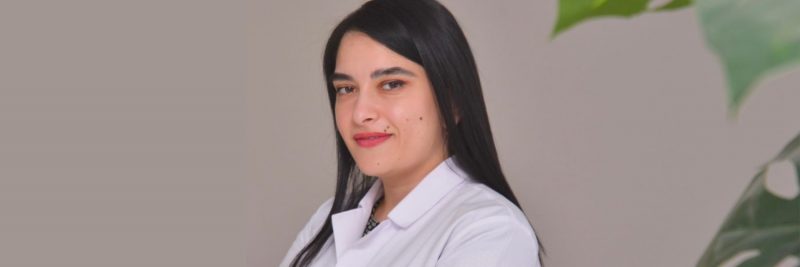
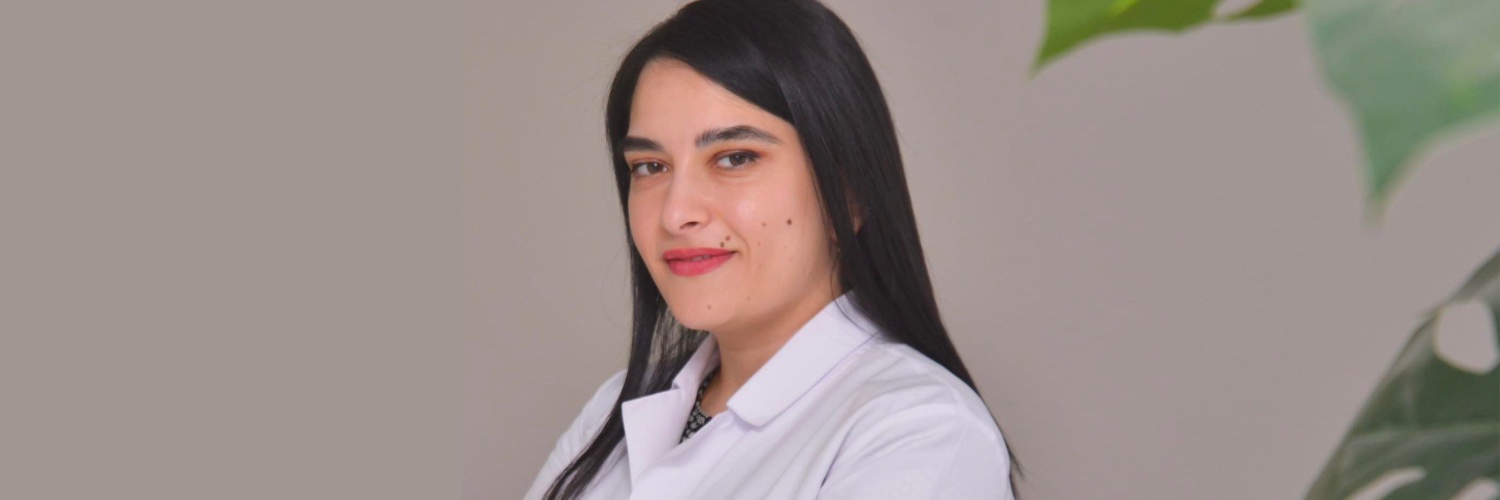
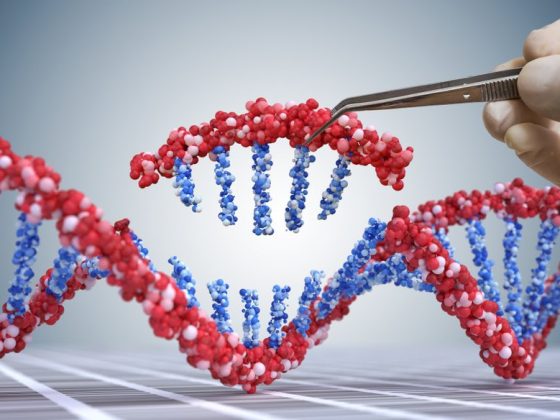
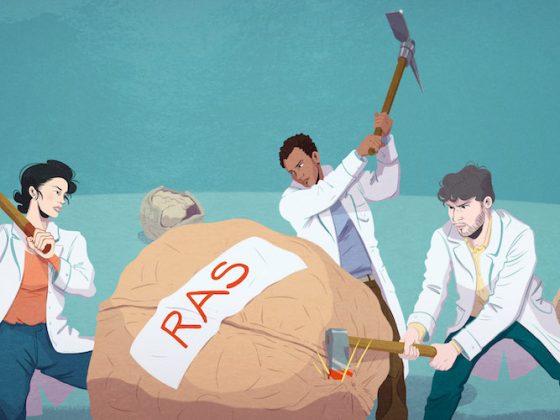





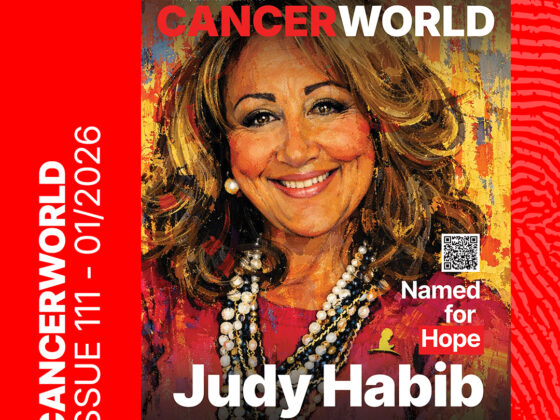
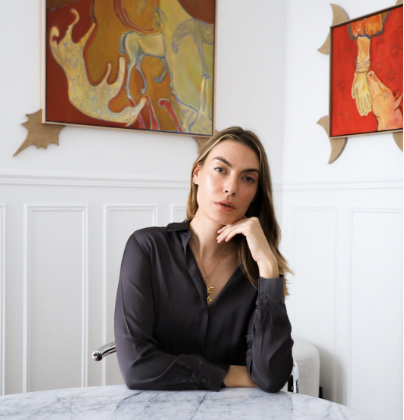
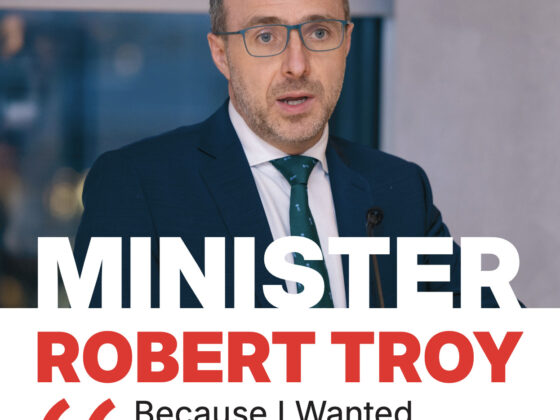
1 comment
If someone asked me how would i describe a dream doctor, I would describe Mariam.
This really very well done article cannot describe really what a character, professional and personality she is: Angel/Doctor who is trying to heal the world , this is Mariam Kukhalashvili.
Comments are closed.